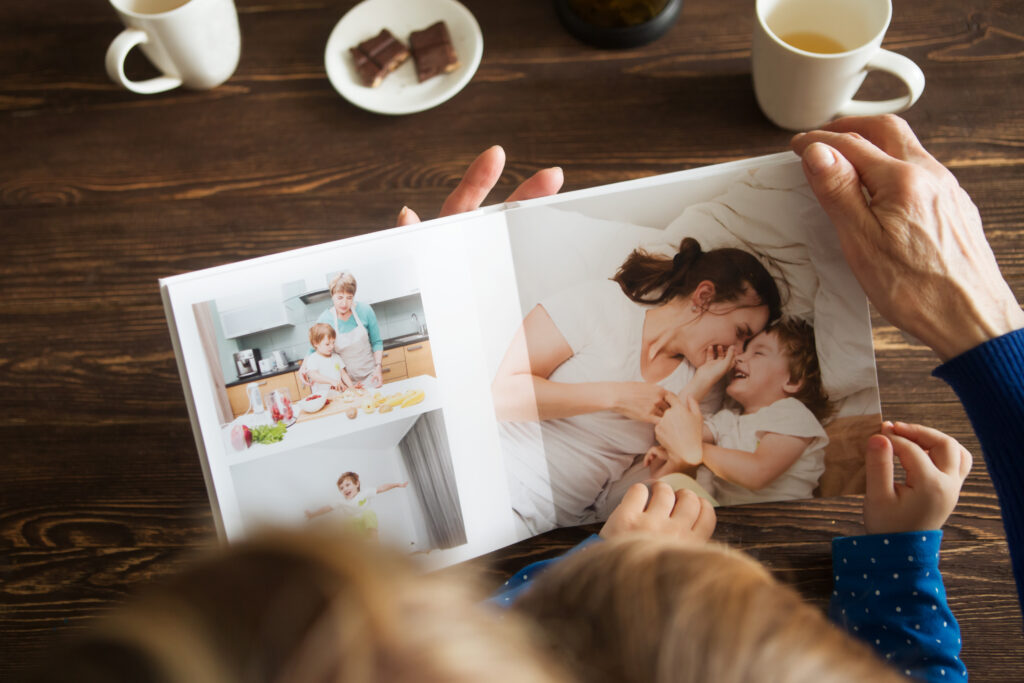
How do you remember your childhood? Do you remember exciting bedtime stories, the smell of homemade cookies, or your mother's loving hugs? Do you remember how nice it was to play in the sandbox with your friends? Or the visit to the zoo, where you petted raccoons and fed elephants?
Are your childhood memories beautiful or rather sad? In psychology, recalling childhood memories is called "mental time travel". Science assumes that our conscious memory only stores events from the age of three.
The first years of our lives are of inestimable importance for our development.
Childhood memories have a great influence on our behavior. They influence our plans and actions. The conclusions we draw from what we have experienced can help us in difficult situations.
Childhood memories are conscious memories that are formed during the first years of life and are stored in the Memory can be saved. A happy Childhood forms the basis for health and success in life.
Negative events can cloud the childhood years. However, it is possible to become a happy and successful adult. We have five tips for you that will help you keep your childhood memories in your heart:
Do you talk to other people about your childhood experiences? Talking about it helps to keep the memory alive.
Get a photo album or photo book and fill it with your childhood photos. Every time you look at the pictures, your childhood memories will become real again.
Write a diary. Autobiographical notes are an important tool. You will remember childhood events more easily later.
Visit the most important places of your childhood. Visiting the elementary school where you learned to read and write will bring back childhood memories. The playground, the park or the pond where you used to feed the ducks are places that remind you of childhood experiences.

Why are childhood memories so important? Childhood shapes us. It lays the foundation for our entire lives. Childhood memories are precious because they take us back to the ideal world of our earliest childhood days.
Often the memory of beautiful experiences in childhood helps us to cope with stress in everyday life. Memories of events in this phase of life influence:
Childhood memories of the first years of life are stored in the subconscious and are considered unconscious memories. Although they are hidden deep within us, inner beliefs and convictions become visible through our behavior and actions.
Self-image, our own assessment of ourselves, is shaped by childhood memories. A healthy self-esteem and a positive attitude towards life are created by classifying and processing childhood experiences.
From earliest childhood we build Relationships on. First with our parents, later with classmates and colleagues at work. Childhood memories play a major role in our ability to bond.
Most of the time, memories of one's childhood are beautiful, funny or pleasant. Just the thought of experiences during childhood triggers warm and pleasant feelings. But what happens if the childhood memories are rather sad or even dramatic? It helps to come to terms with your childhood. You get to know yourself and understand your behavior better.
Childhood memories consist of conscious and subconscious memories. The category of conscious childhood memories includes remembering objects and utensils. Do you remember which toy you liked to play with the most? What clothes did you wear on your birthday, Christmas, or Easter? Childhood memories of things, situations, moments and events are conscious memories.
We do not have access to subconscious childhood memories. For example, we do not remember situations and circumstances before the age of three. All experiences are stored in the subconscious.
In adulthood, unconscious childhood memories can come up again. Examples of this are so-called "triggers." Certain stimuli such as words, gestures, smells, visual impressions or relationship dynamics can bring unconscious memories to light.
Pleasant childhood memories are the basis for mental stability. In the first years of your life, did you experience love and Security experience? Positive memories of childhood lay the foundation for:
Negative childhood memories can encourage behaviors that you may not be able to explain to yourself. However, both types of childhood memories are important for your personality development.
How far is a journey back in time to the Past possible? Do you still remember your first word or your first steps? Probably your parents will answer some questions about your childhood.
Childhood memories are formed in infancy. Later, however, we can no longer remember the majority of our experiences before the age of seven. This is also due to the fact that our language is still poorly developed at the age of up to six.
What is experienced is therefore emotions and images. Scientifically, the phenomenon that we can hardly or only incompletely remember events before school age is called childhood amnesia.
Unconscious and long-forgotten childhood memories shape our belief patterns and behaviors. Even if we no longer remember nice or less nice things, our subconscious does not forget anything. Negative childhood memories influence our lives even in adulthood and are often the cause of:
The inner child within us wants to be loved and valued. In order to process negative childhood memories, it is necessary to establish contact with the inner child.
There are several ways to use the inner child to find and heal. One of them is a coaching that your Self-confidence strengthens. With Hypnosis Coaching you will find your access to the subconscious.
Other options to get you off a unfortunate past are:
Healing the inner child, making peace and forgiveness helps with self-doubt, Fears and bullying. A guided meditation can facilitate contact with your unconscious childhood memories.
The term "the inner child" stands symbolically for a certain way of looking at inner worlds of experience. The model, which is mainly used in psychology, was coined by the scientists John Bradshaw, Margeret Paul and Erika Chopich. They assume that childhood experiences influence our behavior as well as our thinking, experiencing and feeling in adulthood.
Do you want to get rid of negative childhood memories and destructive behaviors? Then heal your inner child by forgiving!
The inner child consists of two halves, a shadow child and a sun child - that's how bestselling author Stefanie Stahl the inner child in her book "The Child in You Must Find Home". The shadow child is identified with negative beliefs about themselves. Negative belief patterns are limiting. They limit you in your life.
In the shadow child there are parts that are associated with fear, pain, grief, anger or helplessness. connected are. These include grievances that have been weighing on your mind since childhood.
The sun child is characterized by positive experiences. It is allowed to be happy and believe in itself. Most people have good and not so good childhood memories of their early years.
Your inner child heals when you learn to deal with slights and stressful events. Face your past. Free yourself from the mental ballast that you have been carrying around with you all your life.
Allow feelings such as sadness, fear and anger. This has a liberating effect. Don't mourn things you didn't have in your childhood. Rather, plan for a happy future.
Speak well to your inner child. Comfort it with loving words. Question negative behavior patterns. Strengthen your self-acceptance and Self-love. Let go of old beliefs and forgive all who have been unintentionally offended!
Childhood memories are important because they shape our outlook on life, our behavior and actions. While positive memories make us strong, negative memories can burden our lives.
With coaching and meditation long forgotten childhood memories can be retrieved and processed. The inner child is healed by simply letting go of old beliefs!


